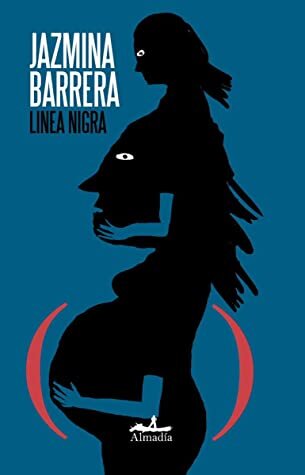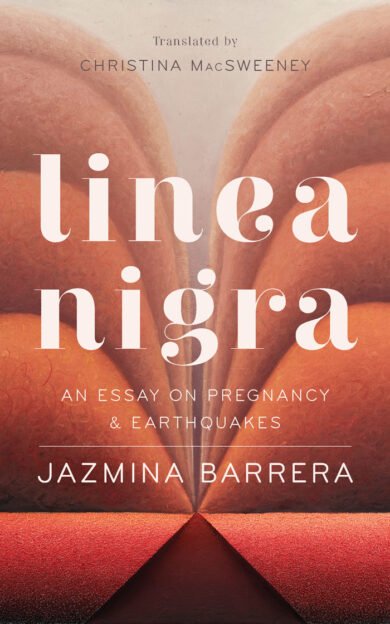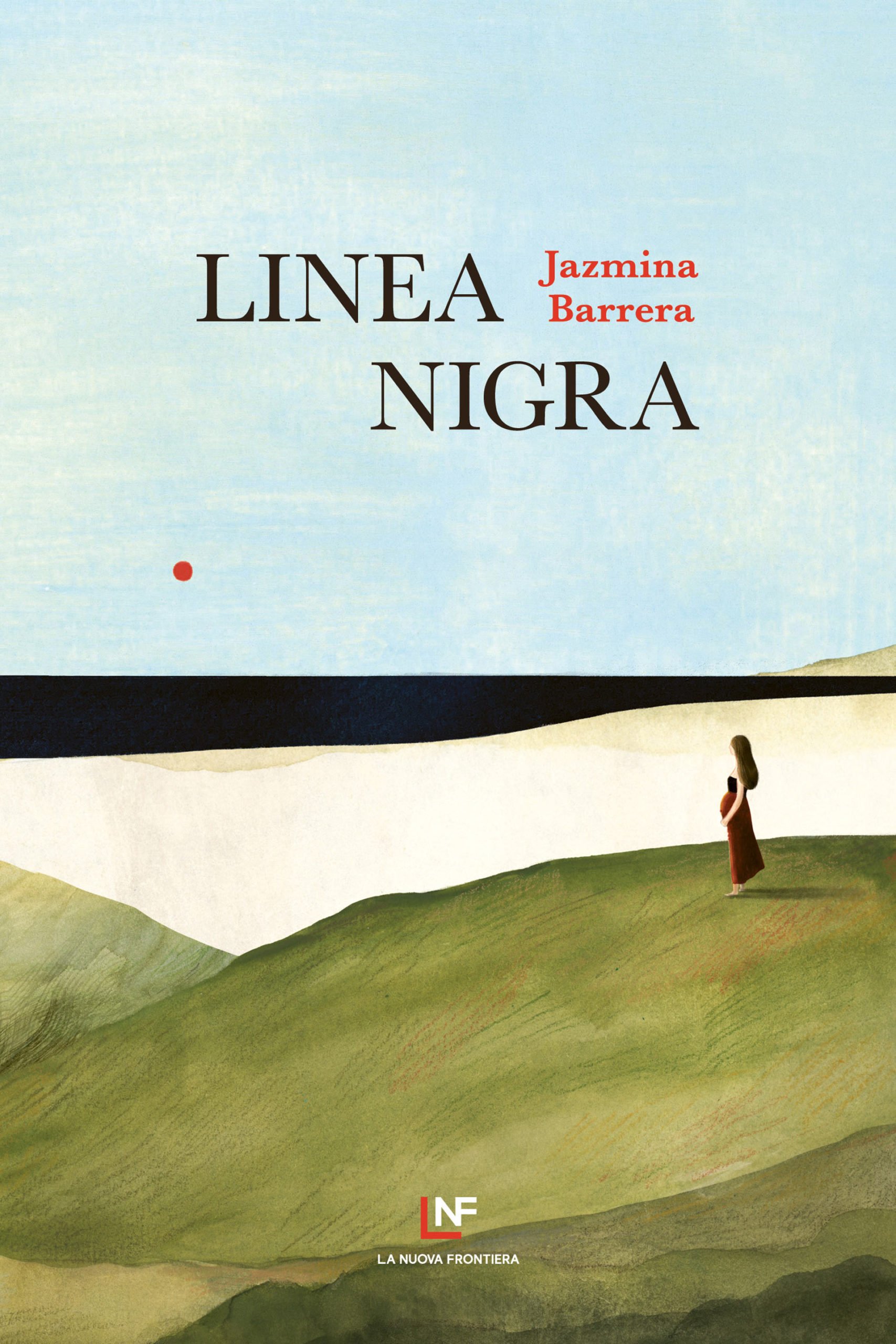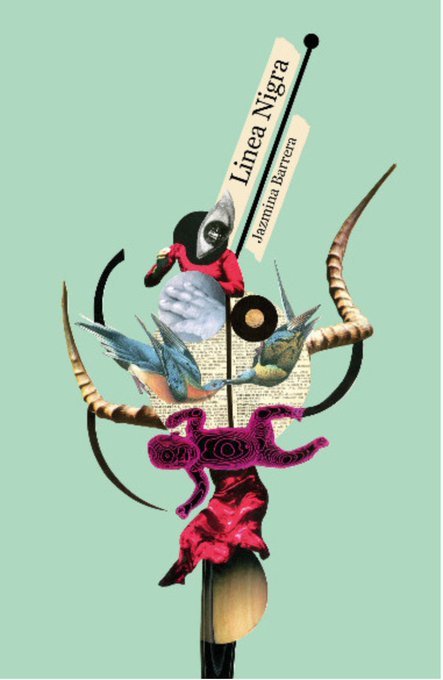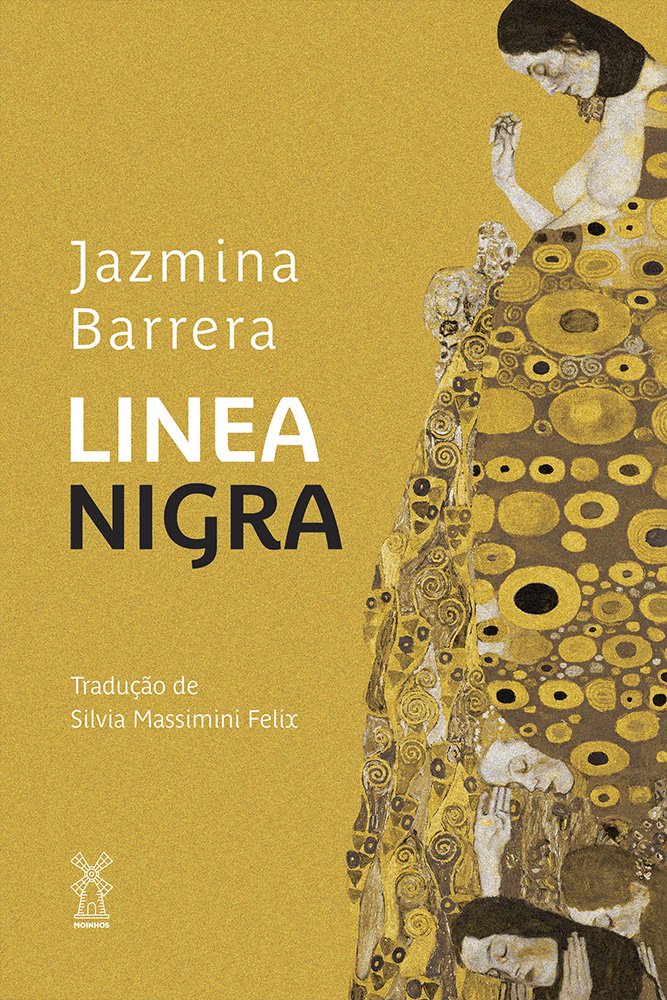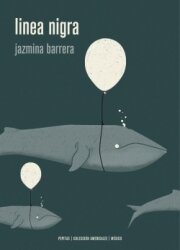Linea nigra
Jazmina Barrera
NON FICTION | 2020 | 160 pages
Finalist for the National Book Critics Circle Barrios Book in Translation Prize & the NBCC Autobiography Prize
Until feminist writers like Ursula K. Le Guin and Adrienne Rich came along to tell us that it’s possible to conceive of the maternal body and child rearing through literature, a woman’s body was a taboo subject and maternity one that was too feminine, rosy, perhaps because men didn’t find it interesting.
Jazmina Barrera, the inexhaustible collector of histories and literary references who already captivated us with her beautiful Cuaderno de faros [On Lighthouses], presents in Linea nigra a compilation of images, citations, and references from women who have conceived of pregnancy, birth, and lactation through art and literature: a collection of feminine voices and visions that have passed through the same inordinate corporeal process and decided to represented in different ways.
This is a book that takes our plurality into account: an open, generous, multiple, fruitful, and communal book, a book that surpasses the notions of literary genres: a microchimeric book.
RIGHTS: spanish (spain) PEPITAS DE CALABAZA | spanish (mexico & argentina) ALMADÍA | spanish (colombia) LAGUNA LIBROS | spanish (chile) MONTACERDOS | english TWO LINES PRESS | catalan LIBROS DEL NIDO I italian LA NUOVA FRONTIERA | portuguese (brazil) EDITORA MOINHOS | chinese SHANGHAI 99 | dutch MERIDIAAN | portuguese (portugal) LIMOEIRO REAL | audio RECORDED BOOKS
“Gorgeous, highly efficient prose that sharply reflects the fragmented reality of pregnancy and early parenthood. Rather than adhering to a traditional narrative structure, [Barrera] follows her trains of thought wherever they take her, and readers will be happy to tag along.”
“On Lighthouses, Barrera’s English-language debut, and Linea Nigra, are both associative, fragmentary works bound by theme and by voice as rendered by formidable translator Christina MacSweeney. The style is at once assured and full of doubt, expansive and precise [...] an engaged reader will come away with a sense of the cosmic scale of this life-giving activity, its worthiness as a subject for literature, and a lingering enchantment with the ‘sheer joy’ and acuity of the writing.”
“Jazmina Barrera’s Linea Nigra (Two Lines Press) is a gorgeous book of insightful, often poetic essays. It’s the autobiography of a woman-identified writer who is deeply examining multiple creative acts from a bodily point of view. (...) At this moment in time when governments around the globe are still oppressing women for the crime of having a woman’s body, restricting women-identifying people from accessing healthcare including abortion, legislating how women and girls may dress and adorn their bodies under threat of death for any transgression, and prohibiting girls from education that would afford them even basic literacy, Barrera’s confident and beautiful book feels not only timely but also revolutionary.”
“When interpreting pregnancy through art, no starting point is better than the musings of the Mexican writer Jazmina Barrera. [...] To call it a memoir would be reductive—it includes so many references to fine art, literature, and history that it functions almost as an anthology or a masterfully curated museum of child-rearing.”
“Jazmina Barrera’s Linea Nigra takes maternal creativity to surprising and rewarding places. It is a book built of ruptures: of identity, time, body, art, and earth. (...) Thanks to Christina MacSweeney’s deft translation from the Spanish, Linea Nigra expands the scope of Anglophone cultural conversations around motherhood and allows Barrera to stand alongside Galchen and Heti as the genre’s foremost thinkers in the 21st century.”
“Part notebook, part audiovisual anthology, Barrera’s hybrid essay Linea Nigra is not your typical book on motherhood. Instead it’s a collection that serves as representation—a comprehensive ‘compilation of images, citations, and references from women who have conceived of pregnancy, birth, and lactation through art and literature.’”
“Barrera offers a moving study of pregnancy, family, art, and loss in this showstopping essay…[her] voice is meditative, bolstered by poetic turns of phrase, precise language, and fresh metaphors. ‘It’s impossible to be original when you write about being a mother,’ Barrera reflects, though her own originality is striking. This beautiful meditation is thick with profound insights.”
“A brilliant essayist.”
“It’s a fragmented text that combines the author’s day-to-day and reflections with mentions of literary, pictorial, and audiovisual works related to pregnancy and birth. (…) Barrera plays with these vicissitudes effectively and meta-literarily to offer readers a very personal work of suggestive literature.”
“The Mexican author has composed a hybrid book. In it, stories abound more than reflections, a storyteller more than an essayist, lyrical descriptions more than psychological dives into personal intimacy (…) A text that the author builds in a pleasant manner, smart, with a skillful domain of narrative time.”
“Jazmina Barrera has woven a tale that is at once informative and poetic, full of concrete and odd details and suggestions that resonate, like musical motifs, with each other.”
“Linea nigra, however, is at once both a linear and rhizomatic text: it begins as a “pregnancy notebook,” which then is broadened and enriched as Barrera reflects on maternity, couples, writing, and visual art. Linea nigra is, above all, an eloquent argument about the place maternity occupies in the literary, pictorial, photographic, and medical traditions.”
“Linea nigra is not just another book about motherhood. There are no lessons or advice here, but instead there is companionship. It is, in the words of the author, a microchimeric book because it is ‘made out of other books.’ I would add that it’s also made out of other authors, the ones Barrera read and who made her feel less alone during her journey, but at the same time out of those who are living through their own transformations and are trying to make sense of them.”
“To say that Linea nigra is a hybrid text is to fall into cliches and point out the obvious, but Barrera’s writing truly takes the form of a story interrupted by diary entries as she keeps track of all that is imminent: her relationships with her mother and partner, the development of her pregnancy, Silvestre’s arrival, the fear of writing.”
“Go for Jazmina Barrera’s Linea nigra, an incredible book that, under the pretense of maternity, is filled with many other topics that it transforms before the readers’ incredulous eyes: the body, individuality, illness, affections.”
“With lucidity and without shame—or in spite of it, in spite of that interiorized censure of the things we have wrongly been taught are ‘obscene’—she reflects sharply on the close encounter with the unknown that is pregnancy (so close that we become the unknown), on childbirth and life with the other, the child. At times I’m moved, at others I’m disturbed. Within the fragmented writing time of a parent—à la Maggie Nelson or Rivka Galchen—Jazmina Barrera explores her own deformations, the excess of body, the lack of comprehension. She does this sometimes by approaching biology, sometimes paintings or photographs that portray different maternities, sometimes the writings of her predecessors, as well as family legends and the oldest encyclopedia on the subject: her own mother. Aside from acting as a guide, this character takes on fundamental importance in the story: the protagonist’s mother confronts her own host, a carcinogenic tumor. This way, a parallelism between the two transformations is established, two lines that run in opposite directions. Two kinds of waiting.”
“A beautiful fragmented essay, a diary where dates are not important (because, ‘with a baby, time becomes irrelevant’), written with the grace of honesty and the liberty of adventure, allowing itself to experience different transformations. Its pages are hit by the tide of everyday life and combine both external and internal landscapes. Her style, natural and precise, delivers an agile reading experience, enjoyable and full of wonders. (...) These pages are the ideal companion for mothers and fathers. Linea nigra is one of those books you need to always keep on hand and reread.”
“The multilayered, deeply felt work that her life experience and obvious talent have combined to produce is eminently worthy of acclaim.”
“Prepare to feel in awe of the female body and of Barrera’s way with words.”
“Jazmina Barrera offers a beautiful homage to the bodies of mothers and the corporeal conversations that have been carried on for millennia. (...) Barrera bestows possibility on existence, on childhood, and motherhood alike.”
“A strange, slim, hybrid book…disarmingly fresh and provocative.”
BY JAZMINA BARRERA:
La reina de espadas
NONFICTION, 2024
Punto de cruz
NOVEL, 2021
Los nombres de los animales
CHILDREN’S, 2021
Linea nigra
ESSAYS, 2020
Cuaderno de faros
ESSAYS, 2017
Cuerpo extraño
ESSAYS, 2013

